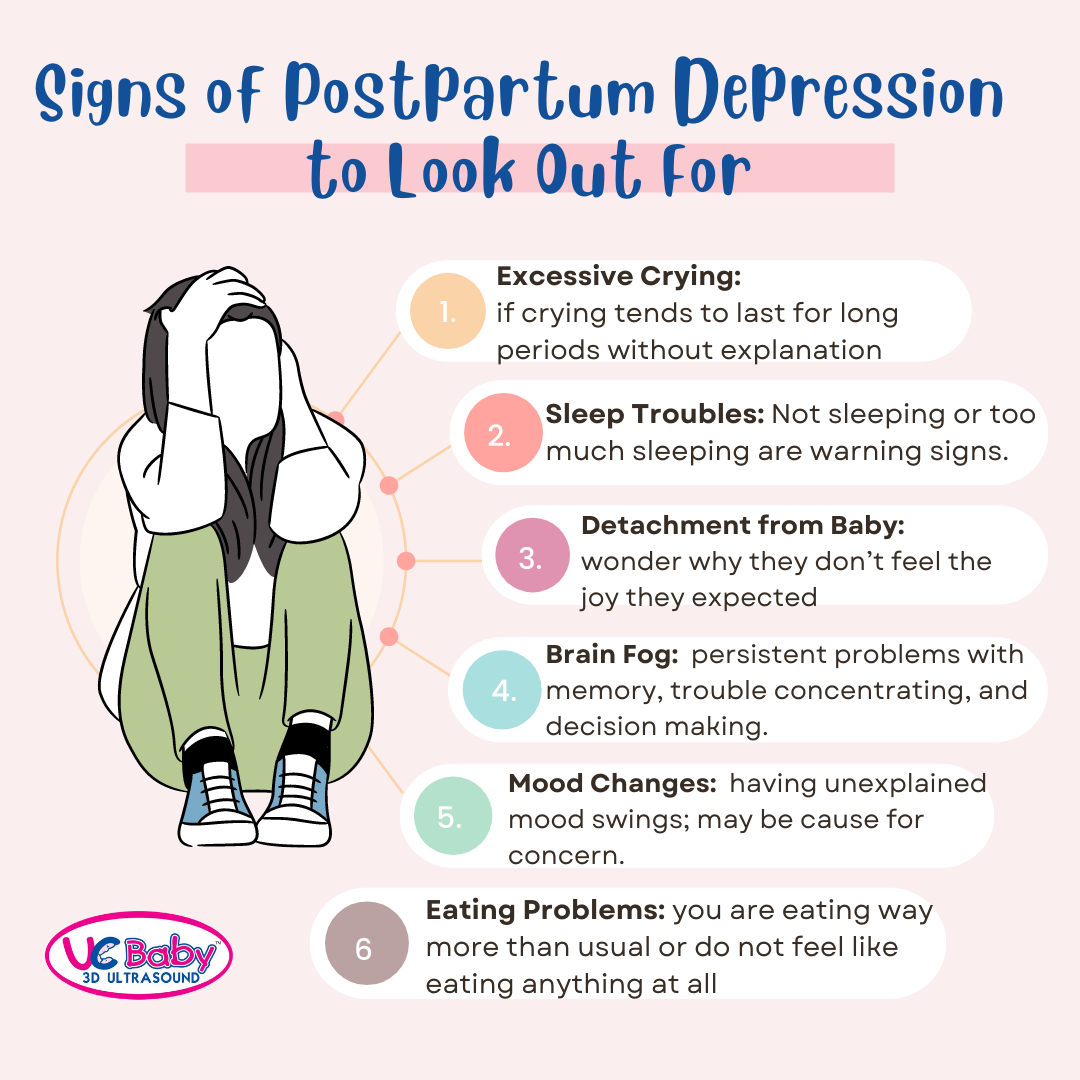The postpartum stage is a difficult time for all mothers. New moms must deal with their recovering bodies as well as a new baby that needs constant attention. It is normal to have feelings of sadness and being overwhelmed. But postpartum depression is something different, which usually requires proper diagnosis and treatment.
It is crucial for the partners, family, and friends of new mothers to also keep an eye out for these signs of postpartum depression and offer help when necessary. New moms should not feel ashamed of having these symptoms and needing support. It is actually very common.
Watch: 6 Signs of Postpartum Depression to Look Out ForSo, what is the difference between postpartum depression and baby blues?
It is important to first distinguish between baby blues and postpartum depression. The easiest way to tell the difference between the two is the timeframe.
Baby blues usually occur five days after birth and last for two weeks, while postpartum depression symptoms can last over a year. The symptoms can overlap between these two diagnoses, so keeping the timeframe in mind is crucial.

Excessive Crying
Crying during the postpartum period is expected because of hormonal imbalances. However, if it tends to last for long periods without explanation, it could be a warning sign. Crying episodes should not be confused with the normal emotions that a new mom is feeling.
Sleep Troubles
Again, it is expected to have unusual sleep patterns with a new baby. Between feedings and changings, new parents rarely get all that much sleep.
There can be signs, however, that your sleep troubles are signs of a more significant problem. For example, if you notice that you or a new mom you know are having trouble sleeping or sleeping too much, it could be a sign of depression.
Detachment from Baby
Being overwhelmed with the new responsibility of parenthood is a usual occurrence post-birth. However, you may want to speak to a professional about feeling overly detached from your baby. Some mothers wonder why they don’t feel the joy they expected or felt with their other children.
Brain Fog
Lack of sleep and being busy can lead to difficulties. These difficulties can include problems with memory, trouble concentrating, and decision-making. If this persists, then it can be an issue to do with postpartum depression.
Mood Changes
If you notice that you or a new mom you know suddenly have unexplained mood swings, this may cause concern. If these include anger, irritability, or anxiousness, and it is out of character, then you may need to consult a doctor.
Eating Problems
A new mom’s body has been through a lot and continues to undergo many changes. During breastfeeding, it is normal to be hungry due to the calories your body burns. However, if you are eating way more than usual or do not feel like eating anything at all, it can be a sign of postpartum depression.
If you have concerns that you or someone you know is exhibiting one or more of these symptoms, it is perfectly okay to seek help. New moms require support, and it is right to ask for assistance or aid someone who needs it.
REFERENCES:
Everything You Need to Know About Postpartum Depression
Baby Blues Vs Postpartum Depression: How To Tell The Difference
Written by: Gabrielle Goldson
Check out our blog – Fourth Stage of Labour- Postpartum Stage





 Invite families and friends to witness this memorable event of your pregnancy. Celebrate that special child-bonding moment with your loved ones, wherever they are in the world.
Invite families and friends to witness this memorable event of your pregnancy. Celebrate that special child-bonding moment with your loved ones, wherever they are in the world. There is nothing more beautiful than your baby's heartbeats. Save that sound forever in a UC Baby® Heartbeat Bear®. It's not just a great keepsake, but also an effective way to sooth your baby to sleep.
There is nothing more beautiful than your baby's heartbeats. Save that sound forever in a UC Baby® Heartbeat Bear®. It's not just a great keepsake, but also an effective way to sooth your baby to sleep.